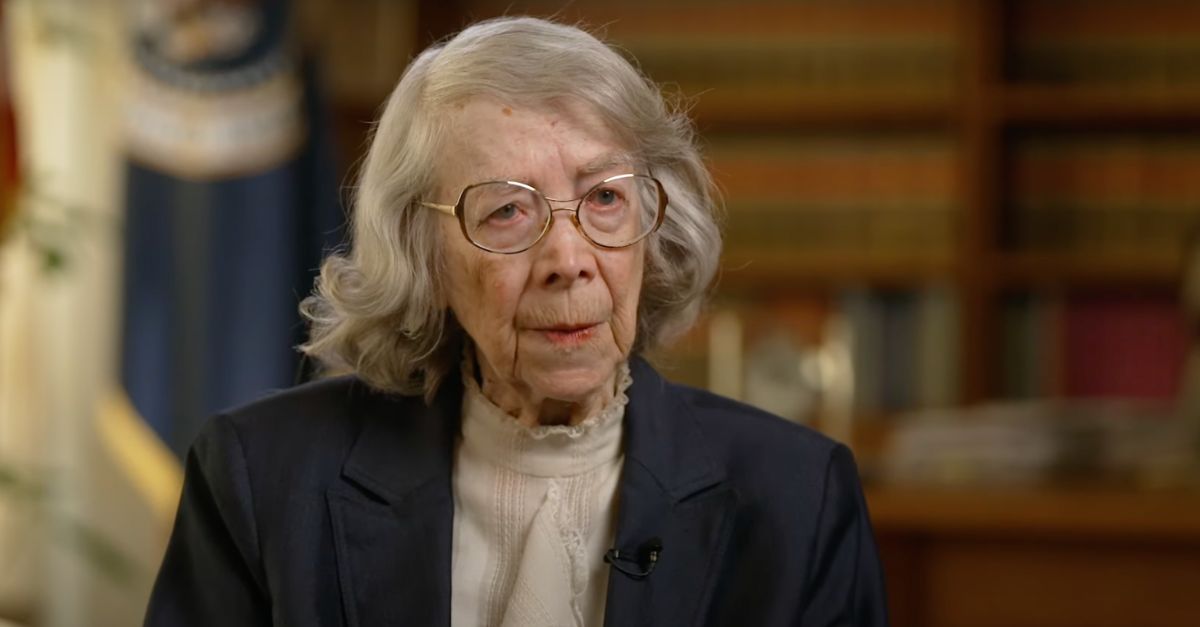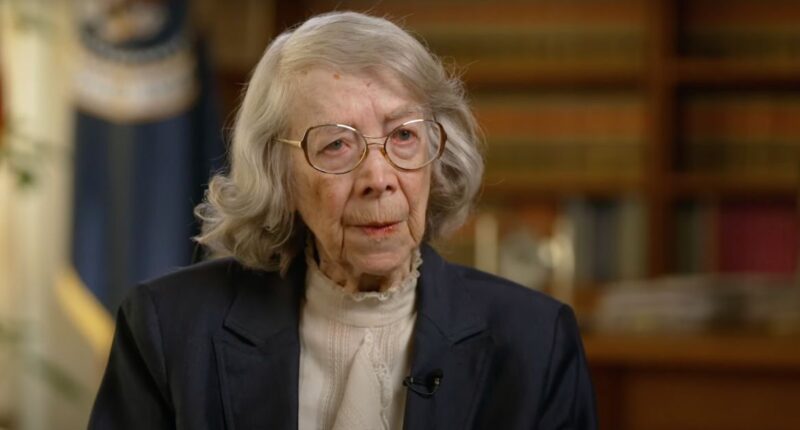
U.S. Circuit Judge Pauline Newman (YouTube).
A judicial council, engaged in a dispute with the nation’s oldest federal judge, 97-year-old Pauline Newman, has identified significant issues with doctor examination reports that were used in her defense against a suspension linked to mental health concerns.
Newman, who has served as a federal judge since being appointed by President Ronald Reagan in 1984, was temporarily suspended by the Federal Circuit last year due to complaints about her conduct and performance at work. Her colleagues reported worrisome behaviors such as delays and confusion, prompting an investigation into her mental well-being.
Despite the investigation and requests for independent neurological testing and medical records, Newman did not cooperate, leading to her suspension. Recently, she sought the release of sealed documents related to her suspension and mental capacity following a gag order issued on December 4.
At the time, Newman insisted it would only violate her own privacy, which she doesn’t care about, on account of the documents having no mention of other witnesses or complainants. Among those documents were doctor examination reports from appointments that Newman went on, voluntarily, to prove she was mentally capable to perform as a U.S. circuit judge. One report from September detailed claims from a California neurosurgeon named Aaron Filler, who said Newman was “fully capable” of performing as a judge and ultimately a “super-ager,” with brain scans showing no alleged signs of major side effects from aging.
According to the three-judge Judicial Council of the Federal Circuit, findings made by medical specialists consulted by the council show “major errors” in Filler’s evaluation, as well as other examination reports that she’s presented. An order was released Friday by Chief Judge Kimberly A. Moore and Judges Sharon Prost and Richard G. Taranto, outlining the problems that were found.
One issue, the judges said, included Filler’s use of a “CT Perfusion scan” as a substitute for neuropsychological testing. According to Dr. James M. Noble, professor of neurology at Columbia University Irving Medical Center and one of the council’s medical consultants, this type of scan “can only demonstrate that a region of the brain is effectively receiving blood. And even an area of the brain effectively receiving blood can still be dysfunctional.”
“CT perfusion is not part of any guidelines for use in evaluations of cognitive aging disorders such as MCI [mild cognitive impairment] or dementia, or for Alzheimer’s disease or related dementias,” Noble said, according to the order, adding that Filler’s approach “is simply neither a standard nor acceptable clinical diagnostic approach in the field.”
Another doctor who consulted the judges, a clinical and forensic neuropsychologist Jonathan DeRight, said: “There are standard and accepted methods to assess for cognitive impairment, and simply administering a Perfusion CT scan is not one of them.”
Another problem with Filler’s reliance on the CT Perfusion scan, the order says, is the mislabeling of a part of Newman’s brain.
“Dr. Filler labeled one image from the scan with two arrows pointing to spots, which he says show ‘High Focal Blood Flow’ in the left and right ‘Hippocampal Region[s],” the order says.
According to Noble, the Columbia University neurology professor, the spot on the scan labeled by Filler is not the hippocampus.
“The hippocampus/hippocampal regions are several centimeters away from the area highlighted by Dr. Filler,” Noble says in the order. “It is anatomically not possible for the hippocampus to be where he says it is, and is not even visible on the image he shows.”
According to DeRight, the Filler report fails to highlight “all possible causes of cognitive impairment.” He blasts it as being “highly subjective, unscientific and unreliable,” saying it was “non-standard,” per the order.
It is not “an objective cognitive test,” according to DeRight, “not a scientifically validated way to measure cognitive abilities,” and “not in line with guidelines in the field for assessing mild cognitive impairment or dementia.”
After Newman was suspended in 2024, she sued the Federal Circuit judges on the judicial council. She was represented in the lawsuit by New Civil Liberties Alliance (NCLA), a public-interest law firm linked to conservative backers that focuses on the so-called “administrative state.”
U.S. District Judge Christopher R. Cooper, a Barack Obama appointee, threw out most of Newman’s lawsuit in February 2024, then dismissed the entire case on the pleadings in July. In his 15-page ruling, Cooper did not focus on the factual allegations against Newman. Rather, the ruling was confined primarily to rejecting the legal challenges Newman had raised to the Judicial Conduct & Disability Act itself. Newman appealed in July.
On Jan. 16, the Judicial Council of the Federal Circuit filed a brief opposing Newman’s appeal of the district court dismissal. The council said Newman’s claim that the suspension is unconstitutional doesn’t hold up, while another of Newman’s arguments — that due process entitles her to transfer to another circuit’s judicial council — “fares no better.”








